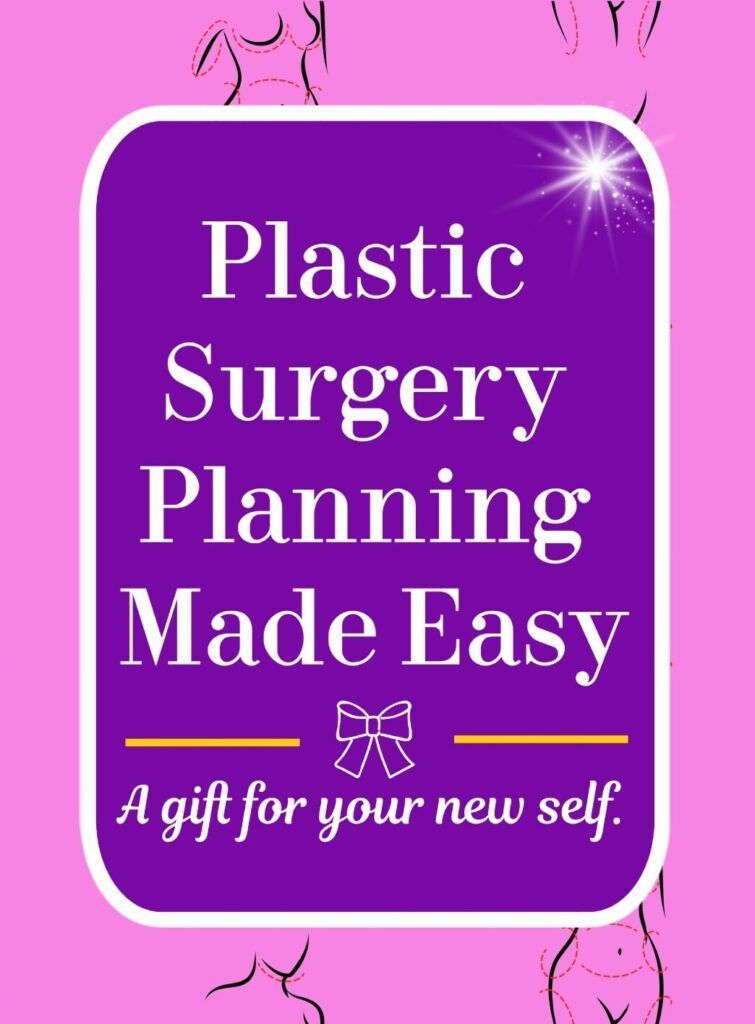If you are considering traveling to the Dominican Republic, Mexico, Costa Rica, Canada, or Brazil for plastic surgery, you are not alone. Medical Tourism for plastic surgery is growing in popularity around the globe. Future plastic surgery patients like you are deciding whether or not to travel to other countries for cosmetic procedures because of cost, culture, and preferences for care.
The most critical factors for achieving positive outcomes are 1) A qualified plastic surgeon, 2) An accredited facility, 3)Quality aftercare, 4) Post-op travel, and 5) Follow-up healthcare in your home country once you return. In this article, you will find information to help guide your decision-making, links to organizations dedicated to keeping you safe if you travel for surgery, and tips for getting the results you want safely. At the end of the day, if you choose medical tourism, you want positive outcomes at the end of the journey.
Plastic Surgery Risks
Plastic surgery, whether performed within or outside of the United States always has risks of complications. Even when all of the boxes are checked, complications can be unavoidable. This is important, especially for patients receiving surgery outside of the United States.
Having a qualified plastic surgeon not only ensures the plastic surgeon has the knowledge and skills to perform cosmetic surgery, but it also helps to reduce the risk of complications. Moreover, if unavoidable complications occur, qualified plastic surgeons have the training to respond appropriately. Check this out: Columbus woman shares medical tourism experience, warns others of risks.
Finding a Qualified Plastic Surgeon Outside of the United States
When researching plastic surgeons outside of your home country, it is essential to start with the certifying boards for your desired destination. In the United States, the American Board of Plastic Surgery certifies plastic surgeons. Many plastic surgeons working outside the United States are Board Certified by the American Board of Plastic Surgery. Organizations offering similar services to the American Board of Plastic Surgery in popular destinations for plastic surgery are listed below. Use them to evaluate the appropriateness of your plastic surgeon choices. CLICK HERE to learn more about board certification.
| Popular Destinations for Plastic Surgery | Trusted Plastic Surgeon Societies |
| Brazil | Sociedade Brasileira de Cirurgia Plástica (SBCP) |
| Canada | The Canadian Society for Aesthetic Plastic Surgery |
| Columbia | Sociedad Colombiana de Cirugía Plástica, Estética y Reconstructiva (SCCP) |
| Costa Rica | Asociacion Costarricense de Cirugia Plastica, Reconstructiva y Estetica |
| Dominican Republic | Dominican Society of Plastic, Reconstructive and Aesthetic Surgery Inc |
| Mexico | Asociación Mexicana de Cirugía Plástica Estética y Reconstructiva |
Additionally, the International Society of Aesthetic Plastic Surgery, a society of plastic surgeons board certified in their home countries, is recognized by the United Nations as a professional multinational resource for plastic surgery patients in search of a qualified plastic surgeon.
Plastic Surgeon Background Checklist
Remember, in your search for a qualified plastic surgeon outside of the United States, to check their 1) Medical School, 2) Plastic Surgery residency training, 3) Active license number, 4) Locations where they have active licenses, 5) Work history, 6) Hospital affiliations, 7) Board Certification status, and 8) Patient reviews.
Outpatient and Inpatient Facility Accreditation
According to the CDC, common complications associated with medical care outside of the United States include surgical site infections, systemic infections, antibiotic resistance, and deep vein thrombosis from travel. In the United States, infections from plastic surgery are rare when board certified plastic surgeons provide care in accredited facilities.
If you are considering traveling outside of the United States for your plastic surgery, you must research the facility to ensure the same accreditation standards exist. Accreditation for plastic surgery facilities means standards for safety, quality, and care are continuously evaluated, and the staffing, equipment, and medications used for surgical procedures are appropriate.
Joint Commission International (JCI) accredits healthcare facilities around the world. World hospital search is where you can search for facilities accredited through JCI easily. DNV Healthcare is another organization that accredits American and International hospitals based on Medicare and Medicaid standards. CLICK HERE to learn more about facility accreditation.
The American Embassy is a Resource
When in doubt, American citizens in foreign countries can contact the U.S. Embassy for information on local healthcare providers and organizations. US Service Workers often use these healthcare resources and can make recommendations that keep you safe.
These recommendations can also include a pharmacy. In the US, the FDA ensures pharmacies are dispensing approved medications. These guarantees are not always present in other countries. After surgery, you will likely receive antibiotics, muscle relaxants, a blood thinner, medicine for nausea, pain medication, and antifungal medication. Ask questions and take measures to ensure you are not receiving counterfeit medications.
Other Post-Operative Considerations
It may be wise to discuss your plans with a healthcare provider you trust before making your final decision. Additionally, a complete health exam prior to travel will create a baseline for comparison in the event there are complications during or after surgery.
Plus, at least 3 months before traveling for your plastic surgery, check with the CDC to see which vaccines are recommended for your destination of choice.
Before Surgery
Before your surgery, in your consultation, tell your plastic surgeon you want a copy of your medical record. Ask how long it will take to receive the complete record and who you should contact if there is an issue. Before boarding your flight home, it is important you have it in hand. In the event you need follow-up care once you return, the doctor treating you will have background information to guide their next steps.
After Surgery
After surgery, plan to stay put for at least 5 to 7 days. The risk for abnormal blood clotting increases post-op. Flying too soon after surgery further increases the risk for deep vein thrombosis and pulmonary embolism, which can be life-threatening. CLICK HERE to learn more about Blood Clots and Travel.
Also, your best bet is to have a caregiver who can provide assistance and monitor your recovery. If you are staying in a hotel, Airbnb, or a place with which you have a short-term stay agreement, make sure you are able to communicate with the service team. Again, have the American Embassy on speed dial so you can get guidance on how to respond to an unfamiliar or unsafe situation.
Helpful Tips
Your Rights and Responsibilities
Finally, before traveling outside of the United States for plastic surgery, know your rights in your destination of choice. As an American Citizen, you may or may not be able to hold the plastic surgeon you have chosen accountable if something goes wrong. The laws in the United States do not protect you when you are not on US soil, and they do not have jurisdiction in other countries.
To Wrap It All Up
If you are considering traveling outside of the United States, gather as much information as you can and use the resources available to you to make the best decision.
In essence, you owe it to yourself to cover all your bases prior to moving forward. For sure you deserve a positive outcome.






